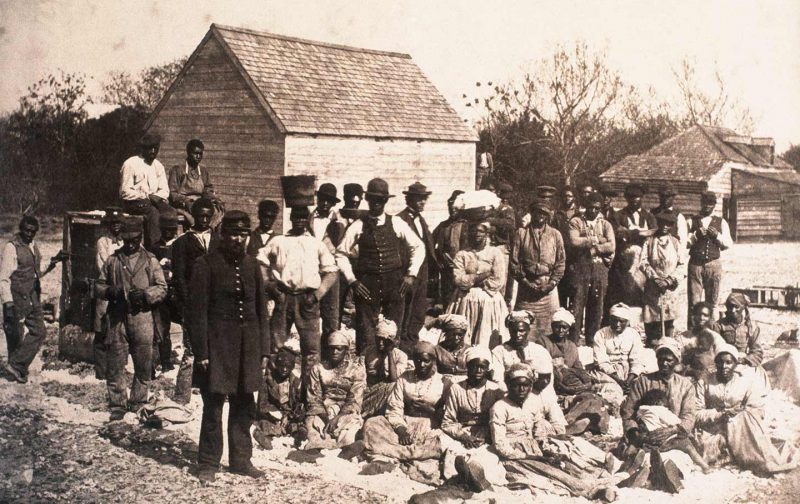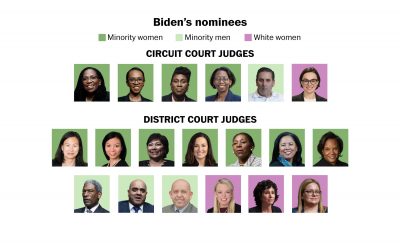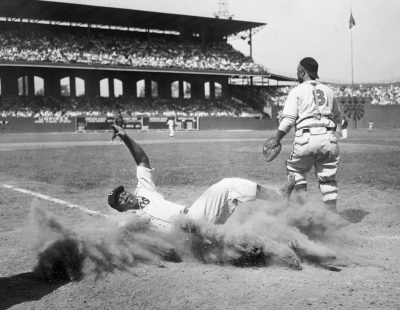Featured
 The Demand of Freedom. The United States’ first civil rights movement. By Kellie Carter Jackson / The Nation
The Demand of Freedom. The United States’ first civil rights movement. By Kellie Carter Jackson / The Nation
Racism is not regional. I often hear people refer to it as though it were trapped in the South. White Northerners who are appalled by the blatant racism around them will say things like “This isn’t Mississippi” or “Take that attitude back to Alabama.” But whether white Northerners like to recognize it or not, slavery was in every colony in the United States for more than a century and a half. It was part of the fabric of America—all of America. After Charleston, South Carolina, New York City had the largest urban enslaved population; by the mid-18th century, one in five people in the city of New York was Black.
Historian Kate Masur’s Until Justice Be Done: America’s First Civil Rights Movement, From the Revolution to Reconstruction helps exhume the often neglected history of both Northern racism and slavery and those Black freedom struggles in the 19th century that sought to abolish them. Read more
Political / Social
 Senate passes bill to make Juneteenth, day commemorating the end of slavery, a federal holiday. By Mike DeBonis and Felicia Sonmez / Wash Post
Senate passes bill to make Juneteenth, day commemorating the end of slavery, a federal holiday. By Mike DeBonis and Felicia Sonmez / Wash Post
The Senate on Tuesday unanimously passed a measure that would establish a federal holiday for Juneteenth, the day that marks the end of slavery in Texas. The bill now heads to the Democratic-led House, where it is likely to be approved, although the timing remains uncertain. Unanimous Senate passage was an anticlimactic culmination to a long effort to commemorate Juneteenth, the day that enslaved Black people in Galveston, Tex., received news on June 19, 1865, that they had been freed by the Emancipation Proclamation — more than two years after President Abraham Lincoln had signed it. Read more
Related: Why many Americans refuse to talk honestly about Juneteenth. By LZ Granderson / LA Times
 This is the Republicans’ back-up plan in case they can’t suppress enough votes. by Fred Hiatt / Wash Post
This is the Republicans’ back-up plan in case they can’t suppress enough votes. by Fred Hiatt / Wash Post
 Former Harvard psychiatrist Lance Dodes: Trump’s psychosis is still an “enormous danger.” By Chauncey Devega / Salon
Former Harvard psychiatrist Lance Dodes: Trump’s psychosis is still an “enormous danger.” By Chauncey Devega / Salon
In an effort to assess Donald Trump’s continuing danger to American society and democracy, I recently spoke with Dr. Lance Dodes, whom I have interviewed on numerous occasions. Dodes is a retired assistant clinical professor of psychiatry at Harvard Medical School and a training and supervising analyst emeritus at the Boston Psychoanalytic Society and Institute. He is among the foremost voices who attempted to warn the American people and the world about Donald Trump’s dangerous behavior. Read more
 White House Unveils Strategy to Combat Domestic Extremism.
White House Unveils Strategy to Combat Domestic Extremism.
The Biden administration on Tuesday unveiled a national strategy to combat domestic extremism, calling for aggressive steps such as hiring more intelligence analysts and screening government employees for ties to hate groups. The 32-page plan highlights a shift in the government’s approach to counterterrorism, which for decades has prioritized fighting foreign terrorists. But violent attacks by American extremists are growing, a problem laid bare by the deadly Capitol riot on Jan. 6. Read more
 We should rethink how we think about Vice President Harris. Perry Bacon Jr. / Wash Post
We should rethink how we think about Vice President Harris. Perry Bacon Jr. / Wash Post
Much of the press coverage and broader narrative about Vice President Harris is embedded with two assumptions: She is a uniquely interesting figure in U.S. politics, and she is a bad politician. Both of these are wrong. The reality is that Harris is fairly traditional. Unlike Barack Obama, she did not write a long memoir about her life before even entering politics, win a long-shot U.S. Senate campaign or vault into the presidential conversation largely because of a single outstanding speech. Nor was her husband the president (Hillary Clinton). Instead, Harris worked her way up step by step, all the while positioning herself firmly in the mainstream of the Democratic Party, not too left or too right — like Biden and unlike, say, Sen. Elizabeth Warren (Mass.). Read more
 Biden nominated as many minority women to be judges in four months as Trump had confirmed in four years. By Adrian Blanco / Wash Post
Biden nominated as many minority women to be judges in four months as Trump had confirmed in four years. By Adrian Blanco / Wash Post
President Biden and the Democrat-led Senate have moved quickly to boost minority and female representation on the federal courts following Donald Trump’s four-year push to remake the judiciary, in which he nominated a large share of White, male justices. Biden’s early judicial slate represents a departure from his recent predecessors; his initial picks are more diverse, and Biden rolled out more nominations earlier in his presidency than others. Read more
 Biden pressed to go ‘big and bold’ in rooting out housing discrimination. By Katy O’Donnell / Politico
Biden pressed to go ‘big and bold’ in rooting out housing discrimination. By Katy O’Donnell / Politico
A government-wide push by President Joe Biden to combat disparities in how homes are valued is emerging as a major test of his pledge to narrow the racial wealth gap, with fair-housing advocates saying it may require a significant disruption of the housing market. Racial inequity in home appraisals is pervasive. According to one study, homes in majority-Black neighborhoods are valued at $48,000 less on average than comparable residences in white neighborhoods, adding up to $156 billion in lost value for Black homeowners. Read more
 SCOTUS Justices Consider Harvard Affirmative Action Case. By Mark Sherman / HuffPost
SCOTUS Justices Consider Harvard Affirmative Action Case. By Mark Sherman / HuffPost
With abortion and guns already on the agenda, the conservative-dominated Supreme Court is considering adding a third blockbuster issue — whether to ban consideration of race in college admissions. The justices could say as soon as Monday whether they will hear an appeal claiming that Harvard discriminates against Asian American applicants, in a case that could have nationwide repercussions. The case would not be argued until the fall or winter. Read more
 Southern Baptist Convention’s focus on mission recalls history of promoting white dominance. By Janet Kragt Bakker / The Conversation
Southern Baptist Convention’s focus on mission recalls history of promoting white dominance. By Janet Kragt Bakker / The Conversation
The pro-slavery legacy of the SBC continues to haunt the denomination, producing halting attempts to clear its name while evading systemic analysis of racism that is found in critical theory. It is important to keep this history in mind when considering the current agenda of the Southern Baptist Convention and other white Christians steeped in a legacy of cultural imperialism and white supremacy. Without an interrogation of the meaning of their rhetoric, current SBC appeals to the gospel message and an evangelistic mandate – as shown though the promotion of the “Great Commission Baptists” moniker – reinforce rather than challenge this legacy. Read more
 Wrongly denied funding, Black colleges are fighting back. By Kristopher J. Brooks / CBS News
Wrongly denied funding, Black colleges are fighting back. By Kristopher J. Brooks / CBS News
Historically Black colleges and universities in the U.S. have been underfunded for decades, with billions of dollars in state funding that should have gone to those schools diverted by lawmakers for other purposes, according to higher education experts. Now HBCU leaders are pushing to get the money these institutions say they are owed. Read more
 How the Death Penalty Discriminates. By Robert Davis / The Progressive
How the Death Penalty Discriminates. By Robert Davis / The Progressive
According to Death Penalty Information Center’s report “Enduring Injustice” from September 2020, people of color are still overrepresented in capital punishment cases. The number of people of color on death row, it says, grew from 45.6 percent of the total prison population in 1980 to nearly 60 percent by 2019. The report also suggests that implicit biases in prosecutors, judges, and jury members may play a role in the unequal distribution of capital punishment. Personal biases certainly exist in some legal circles, but the report says biases can also exist geographically. Read more
 Interracial marriages now more common, but not without challenges. By CBS News
Interracial marriages now more common, but not without challenges. By CBS News
Nowadays, you can hardly open a magazine or turn on the TV without seeing interracial couples. According to the Pew Research Center, at least 19 percent of new marriages in the U.S. now involve spouses from different ethnic or racial groups – up from 11% in 2000. And the General Social Survey found that only one in 10 Americans say they would oppose a close relative marrying someone of a different race or ethnicity. But that doesn’t mean that tension has disappeared. Read more
 Dr. Dre helping bring new school to Southern California. CBS News
Dr. Dre helping bring new school to Southern California. CBS News
LAUSD announced Monday that Andre “Dr. Dre” Young and his business partner, Jimmy Iovine, have partnered with the district to create a high school with a “groundbreaking approach that combines design, business and technology with hands-on, real-world learning to help develop young leaders, innovators and entrepreneurs.” The school is scheduled to open in the fall of 2022 and will share the same campus as Audubon Middle School in Leimert Park. The school does not yet have an official name. Currently it is known as Regional High School No. 1. Read more
Related: The Rise of Black Homeschooling.
Historical / Cultural
 The last known slave ship and the community founded by its survivors. By Anderson Cooper / CBS News
The last known slave ship and the community founded by its survivors. By Anderson Cooper / CBS News
Three years ago, a sunken ship was found in the bottom of an Alabama river. It turned out to be the long-lost wreck of the Clotilda – the last slave ship known to have brought captured Africans to America in 1860. At least 12 million Africans were shipped to the Americas, in the more than 350 years of the trans-Atlantic slave trade, but as we first reported in November, the journey of the 110 captive men, women, and children brought to Alabama on the Clotilda, is one of the best-documented slave voyages in history. The names of those enslaved Africans, and their story, has been passed down through the generations by their descendents, some of whom still live just a few miles from where the ship was found, in a community called Africatown. Shown are descendants of some of the enslaved aboard the Clotilda. Read more
 Watch a Never-Before-Aired James Baldwin Interview From 1979. By
Watch a Never-Before-Aired James Baldwin Interview From 1979. By
 Lin-Manuel Miranda apologizes for lack of Afro-Latino representation in ‘In the Heights.’ By Doha Madani / NBC News
Lin-Manuel Miranda apologizes for lack of Afro-Latino representation in ‘In the Heights.’ By Doha Madani / NBC News
Lin-Manuel Miranda addressed criticism following the opening weekend of the movie adaption of “In the Heights,” apologizing Monday for a lack of African Latino representation. “I’m seeing the discussion around Afro-Latino representation in our film this weekend and it is clear that many in our dark-skinned Afro-Latino community don’t feel sufficiently represented within it, particularly among the leading roles,” Miranda said. The Washington Heights native said that without sufficient representation of dark-skinned African Latinos, “the work feels extractive of the community.” Read more
 Oprah’s latest Book Club pick, ‘The Sweetness of Water,’ is a miraculous debut. By Ron Charles / Wash Post
Oprah’s latest Book Club pick, ‘The Sweetness of Water,’ is a miraculous debut. By Ron Charles / Wash Post
 Hollywood’s treatment of Latinos is an open wound. Healing it requires a reckoning. By Daniel Hernandez / LA Times and Yahoo Sports
Hollywood’s treatment of Latinos is an open wound. Healing it requires a reckoning. By Daniel Hernandez / LA Times and Yahoo Sports
Veteran actor Edward James Olmos didn’t hold back when he submitted testimony to the U.S. House Judiciary Committee hearing on diversity in American media last September. “White Hollywood does not want to tell the real stories of Latinos,” he said in his written remarks. Latinos, he lamented, “are in a worse place now” than in 1964 when he started in the business and made his mark with “Blade Runner” (1982) and “Stand and Deliver” (1988). “Just because there are several successful Latino actors does not mean that Latinos are making it in Hollywood.” It’s one of Hollywood’s biggest open wounds. Read more
 In Her New Memoir, Ursula M. Burns Recounts Blazing a Trail to the Top of Xerox.
In Her New Memoir, Ursula M. Burns Recounts Blazing a Trail to the Top of Xerox.
Ursula M. Burns is the former chief executive of Xerox, a job she held from 2009 to 2016. She was the first Black female C.E.O. of a Fortune 500 company. When her new memoir, “Where You Are Is Not Who You Are,” gets executive-summarized, the bullet points will probably be obvious. Burns gives credit for her success to her single mother, a hardworking Panamanian immigrant on welfare who raised three children in a tenement apartment on Manhattan’s Lower East Side. Burns prints lessons derived from her formidable mother throughout her memoir, and she isolates the six key takeaways on the final page. Read more
 Bobby Rush Lived the Blues. Six Decades On, He’s Still Playing Them.
Bobby Rush Lived the Blues. Six Decades On, He’s Still Playing Them.
Sports
 Kevin Durant puts in historic performance as Brooklyn Nets beat Milwaukee Bucks. Ben Morse / CNN
Kevin Durant puts in historic performance as Brooklyn Nets beat Milwaukee Bucks. Ben Morse / CNN
On the back of two straight losses, without his fellow star Kyrie Irving and with a just returning from injury James Harden, Kevin Durant once again showed why he’s one of the best in the NBA. On Tuesday night, he scored 49 points, grabbed 17 rebounds and dished out 10 assists to help his Brooklyn Nets come back and beat the Milwaukee Bucks 114-108 in Game Five of the Eastern Conference semifinals. In doing so, Durant became the first player in NBA history to record at least 45 points, 15 rebounds and 10 assists in a playoff game. Read more
 Baseball Reference Adds Negro Leagues Statistics, Rewriting Its Record Book.
Baseball Reference Adds Negro Leagues Statistics, Rewriting Its Record Book.
On Monday, Baseball Reference, the go-to source on the internet for such matters, would have told you that Stan Musial led the major leagues with a .357 batting average in 1943. It also would have said numerous pitchers took a turn leading the majors in strikeouts per nine innings between 1927 and 1945, and that the top three batters in career adjusted on-base-plus-slugging percentage were Babe Ruth, Ted Williams and Barry Bonds. A day later, all of that looks much different. Now, Tetelo Vargas of the New York Cubans (.471) and Josh Gibson of the Homestead Grays (.466) have both surpassed Musial in 1943. Satchel Paige, a dominant pitcher for more than 20 seasons, has taken over eight of those strikeout titles. And Oscar Charleston, perhaps the finest all-around player in Negro leagues history, has bumped Bonds for the third-best career mark in adjusted O.P.S. Read more
Site Information
Visit our home page for more articles, book/podcast and video favorites. And at the top of this page register your email to receive notification of new editions of Race Inquiry Digest. Click here for earlier Digests.
About Race Inquiry and Race Inquiry Digest. The Digest is published on Mondays and Thursdays.
Use the buttons below to share the Digest in an email, or post to your Facebook, Linkedin or Twitter accounts.